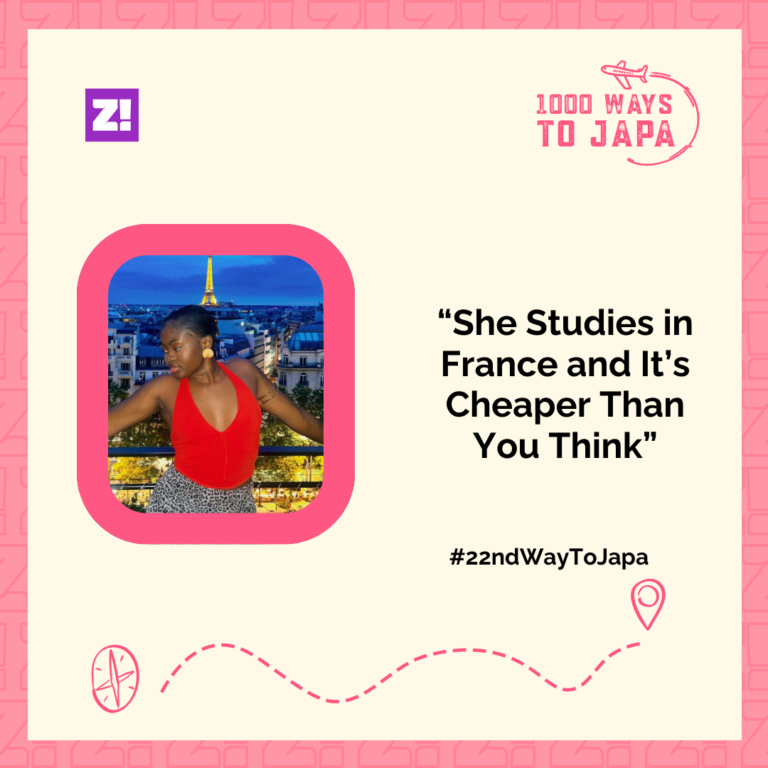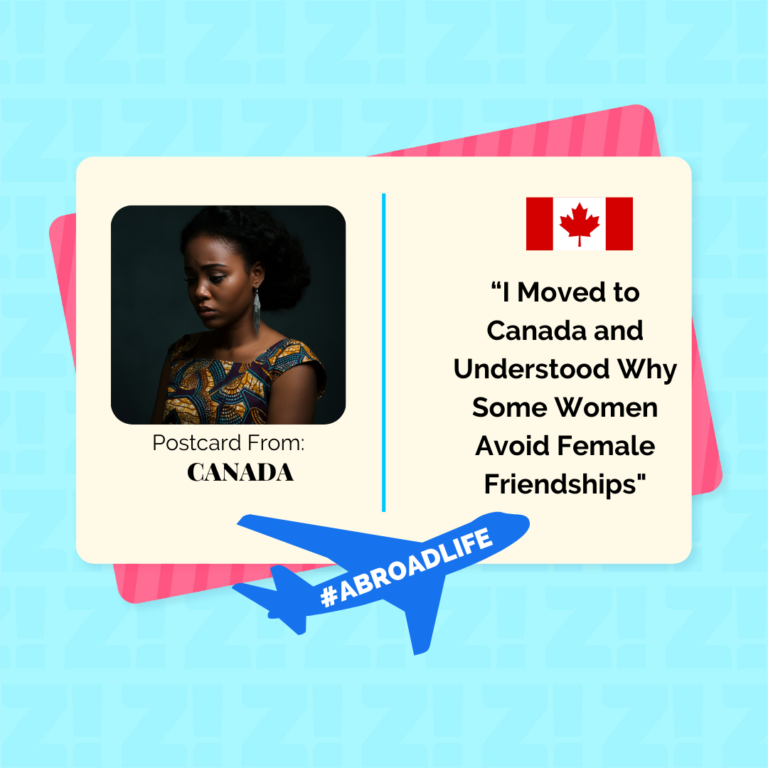Someone you know has left or is planning to leave. 1,000 Ways To Japa will speak to real people and explore the infinite number of reasons and paths they use to get to Japa.
Tunde (25) spent his university days preparing for a fully funded UK scholarship, only to get a rejection letter. But that rejection was the redirection he needed to become a teaching assistant at a US university where his fees are covered. He talks about experiencing normalcy for the first time and breaking free from Nigeria’s grid problems.
Where do you currently live, and when did you leave Nigeria?
I live in the United States, and I’m a Masters Student at North Carolina State University. I left Nigeria in August 2024.
Is there a particular reason why you chose to travel through the student visa route?
At first, my dream was to become a Chevening scholar (Chevening is a fully-funded scholarship that lets you study in the UK), but I’ve always wanted to study abroad. You know, those ideas you get from reading fancy stories as a child, right? That’s what inspired that goal. Also, one of my lecturers at Lagos State University was a Chevening scholar; this really made me feel like I had a shot at it, so before I graduated, I was already intentional about preparing for the scholarship. To ensure I got it, I worked hard, topped my class, finished with a first-class, and remained in contact with my lecturers.
So did you get the Chevening scholarship?
Thank you for that question. I was served a very nice rejection letter. Misinformation is crazy because some people told me getting a scholarship in the US was impossible, and that’s why I was hellbent on Chevening.
America is a capitalist society because there’s no free money–It’s true that finding scholarships like Chevening is not common here. What you’ll commonly find are assistantship openings, but I didn’t even know that till I heard about it for the first time in 2022. I spent five years in university, and I never heard about the opportunity.
Interesting
Even after I heard about it, my mind was still focused on Chevening, but when I went to the NYSC orientation camp, I met a guy who seemed to know a lot about moving to the US. He encouraged me to apply to some of its schools. In 2022, I applied to US schools and the Chevening scholarship as well. To be fair, I knew Chevening was going to reject my application.
How did you know?
I applied on the day of the deadline. Chevening also provides a scoring guide to predict how the review committee will judge your application, so I told myself the truth and moved on.
I knew that my best chance of studying abroad was to target more schools in the US. For the schools I applied to, I got two partially funded admissions, two non-funded admissions, and one rejection. Thankfully, I was wise enough not to pay a tuition deposit to either of the schools that offered me partial scholarships.
The partial scholarship was a conditional offer, so one of my siblings talked sense into my head, and I decided not to proceed with the deposit payment. The funniest thing is that if I had applied for a visa at that point in my life, I would have been given an anointed rejection. I let go of that admission and decided to re-strategise. In 2023, I wrote my IELTS, identified more schools and paid application fees for them. It was a perfect move because three of the schools I applied to got back to me with fully funded offers, and I chose North Carolina.
Congratulations. What makes this one different from the Chevening Scholarship?
European scholarships like Chevening don’t usually require you to teach. The scholarship I got is actually a job opportunity that comes with benefits. That’s what an assistantship is—I am a teaching assistant to a professor, and I also go to class. When I get to my second year, I will become an instructor myself. This means I’ll be teaching students who will pay me for my service and cover my school fees, too.
In Europe, you are rarely required to teach. European scholarships usually pay for flights, but in the US, you are most likely going to pay for your flights. Chevening also covers your accommodation in the UK, so it’s a nice opportunity for Nigerians who make it through the competitive application process.
What happens after you finish your assistantship program?
So the F1 visa, which I’m currently on, can expire, but if I choose to continue studying, I can always renew it. If you’re studying stem-designated programs and your F1 visa expires, you can get an Optical Practical Training visa (OPT) for up to three years. If it is a non-STEM course you’re studying, you get one year. You’re supposed to return home if you don’t get a job after that one year of practical training, but if you get a job, you can stay in the US. You can even apply for what they call the EB-2 National Interest Waiver to show that you’re an extraordinary individual who can contribute to the growth of the United States. If it works out, you get a green card.
How can interested Nigerians find an assistantship scholarship like yours?
Research is the first thing you need to do. There are many schools that offer this opportunity, but you won’t know if you don’t do your research. If you’re still a student and haven’t gotten to your final year yet, I’ll advise that you search for schools that interest you, check out what programs they are funding and do your final project along that line.
If I had that information as an undergrad, I could have left Nigeria sooner. For those who have already graduated, you need to do your research, find schools with fully-funded programs related to what you studied and select the ones you want.
Some schools will require you to take English proficiency tests, especially if you want to be a teaching assistant. You can apply for a waiver, and if its approved, good for you. You should also be intentional about the school’s requirements. For example, if they require you to take the Graduate Record Examination (GRE), you should take the exams. When that’s sorted, write your statement of purpose; some schools may still need you to write a personal statement, It just depends on the school you’re applying to. Get your transcript and pray that your Nigerian school will not be unfortunate–It’s important to note that you’ll need those lecturers that you don’t like.
For what?
It’s best to stay in touch with one or two lecturers because you need their recommendation; it carries weight. You should also keep your final year project because you’ll need it. Sometimes, these schools want to be able to gauge that you can do academic writing. There are also lots of scholarship influencers on Twitter, follow the right set of people, and you will get access to more information.
Can you give me more specific details on how to get the scholarship itself?
For my school, I didn’t have to apply separately for the assistantship; all I did was show interest in financial aid during my application. However, one of the other schools I applied to required me to write a separate essay telling them about my teaching philosophy. It depends on the school you apply to. This is why I mentioned earlier that research is important.
The application process is straightforward as I described earlier, but you’ll decide where you apply to based on your interest and the school’s requirements. However, I advise people wanting to do their PhD should consider research assistant openings. For this opening, you’ll need to reach out to professors who have grants or professors who are working on research projects that align with your interests. If your research interests them, and they think it’s innovative enough, they can bring you to the US to work as a research assistant in their lab. There’s no one-size-fits-all approach to getting these opportunities; Just identify your school and determine how they fund.
Thanks for the expo. How is your life now compared to when you were in Nigeria?
God, my life is so different but to be fair, I wasn’t so impressed when I first got here.
Maybe I was expecting to walk down streets of gold or something, but I realised that it’s just a normal country. The US offers the kind of normalcy that you’ve been missing all your life. Do you know how much 24 hours of light can change your life?
Screams in the national grid. Don’t insult me, please.
I can’t help it. The grid is collapsing every two market days. You’ll experience some things and just start praying that others will experience them too. The only disadvantage, which isn’t so bad, is that the city bus is scheduled, and you can’t just board a bus at will as you would in Nigeria. This affects my mobility.
My school has a shuttle, and they also partner with the city bus, so I don’t have to pay for transportation but if I miss the city bus, there’s no okada I can just hop on. I can either take Uber or Lyft. That’s why you’ll see PhD students whose program runs for up to five years buying cars. If you’ve spent up to six months here, and your payroll seems reasonable enough to them, you can get enough credit to buy a car and spread the payment across five years.
Even the students in the classroom I teach in as a teaching assistant have cars. Life is not hard here, but since I came, I’ve realised that the American healthcare system is not the best–In Nigeria, you can walk into any hospital if you’re not feeling well, but here, you can’t easily do that. You have to book appointments.
Sounds rough.
Yeah but I can work with it because the advantages are great. I’ve been adding weight since I got to this country. In Nigeria, I felt like I wasn’t adding weight, no matter how much I ate. But since I got here, it’s just been easy to add weight.
I love that for you.
I think it’s mostly because I’m not spending much on food. Food is relatively affordable here. It’s not very cheap, but compared to what people are spending in Nigeria, it’s reasonable.
That’s interesting. Any plans to come back to Nigeria?
I’m taking it one day at a time. When the future comes, we’ll find out.
On a scale of one to 10, how happy are you?
I’m genuinely happy. I’ll say seven. I think it would be higher in the future.
Want to share your Japa story? Please reach out to me here.




